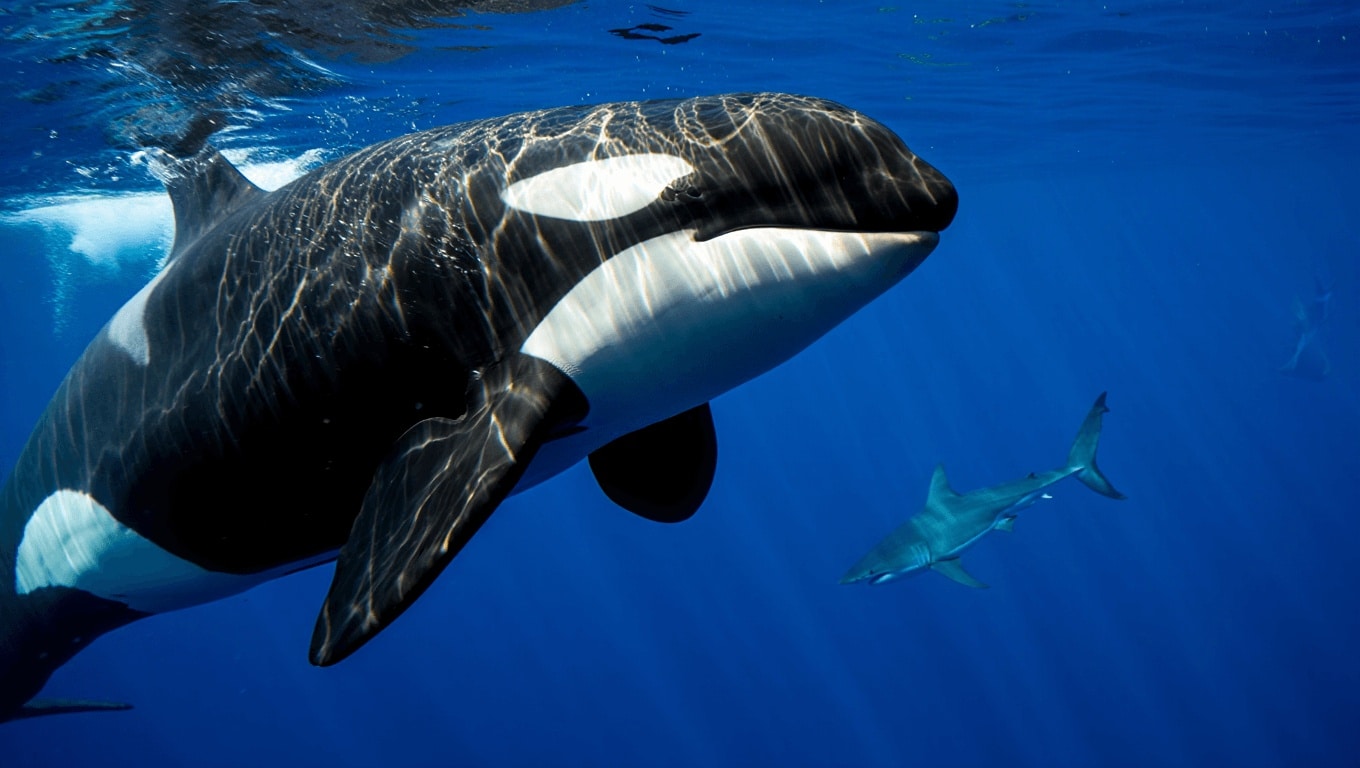In a striking display of predatory intelligence, a group of orcas in the Gulf of California, known as the Moctezuma pod, has captured the attention of marine scientists from Mexico and the United States. These orcas have developed a highly specialized method of hunting that targets young great white sharks, a phenomenon detailed in a recent study published in Frontiers in Marine Science. The study not only sheds light on the complex hunting strategies of these apex predators but also poses questions about the broader environmental changes influencing their behaviors, particularly the implications of global warming.
Unveiling the Moctezuma Pod’s Hunting Techniques
Pluto TV’s Hidden Movie Section Rivals Premium Services
Korean Netflix Has 200+ Shows US Version Doesn’t Stream
The Moctezuma pod, named after a notably identified male orca in the group, has shown remarkable skills in hunting young sharks by exploiting their inexperience. These orcas have been observed employing a unique tactic where they force the shark to the water’s surface, flip it upside down, inducing a state of tonic immobility, which renders the shark defenseless. This allows the orcas to target the shark’s liver, a high-energy organ, with precision and coordination.
Documented Encounters
Erick Higuera Rivas, a project director with Conexiones Terramar and Pelagic Life, has documented several such encounters. In one instance from August 2020, five orcas were seen coordinating an attack on a juvenile white shark, eventually returning to the surface with the shark’s liver. A similar incident was recorded again in August 2022, highlighting the refined technique and strategic prowess of this orca group.
Climate Change and Shifts in Shark Populations
Netflix reveals economics behind 3-season cancellations as viewership metrics drop
YouTube Premium Originals Nobody Talks About Are Award-Winning
Scientists believe that global warming is altering the breeding grounds of great white sharks, pushing them closer to the Gulf of California where the Moctezuma pod thrives. These environmental shifts may be facilitating the pod’s specialized hunting practices, as younger and less experienced sharks are more frequently found in these waters.
Broader Impacts on Marine Ecosystems
The increasing presence of young great white sharks in the area not only affects the dynamics of local marine ecosystems but also gives researchers a unique opportunity to study predator-prey interactions under changing environmental conditions. This research could provide crucial insights into the adaptability of orcas amidst global climatic shifts and their potential impacts on marine biodiversity.
Future Research and Conservation Efforts
The ongoing study of the Moctezuma pod’s diet and hunting habits is critical for developing effective conservation strategies. Researchers, including Francesca Pancaldi from the National Polytechnic Institute of Mexico and Salvador Jorgensen from California State University, emphasize the need for further research to determine whether these orcas are specifically targeting young sharks or if this behavior is part of a broader dietary pattern.
Understanding these patterns is essential not only for the conservation of orcas and great white sharks but also for maintaining the balance of marine ecosystems in the Gulf of California and beyond. As global temperatures continue to rise, studying these apex predators provides valuable insights into the natural world’s response to human-induced environmental changes.

Daniel Harris is a specialist journalist focused on the crossroads of breaking news, extraordinary history, and enduring legends. With a background in historical research and storytelling, he blends timely reporting with timeless narratives, making complex events and ancient myths resonate with today’s readers. Daniel’s work often uncovers surprising links between present-day headlines and legendary tales, offering unique perspectives that captivate diverse audiences. Beyond reporting, he is passionate about preserving oral traditions and exploring how extraordinary stories continue to shape culture and identity.

